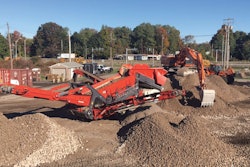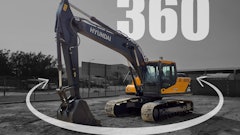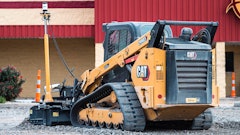
Any job is better than no job – or is it?
When you run a business and find yourself responsible for paying bills, meeting payroll and funding your own retirement, it can be tempting to take anything that comes your way. But some projects actually end up costing you more than they’re worth and keep you from spending time on profitable work. How do you determine if a job’s not worth taking?
Run the numbers first
Before bidding on any job, you need to be realistic about what it will cost you to finish the work on time and to the required specs. Ask yourself:
- What are my employee costs to complete this job — wages, benefits, workers’ compensation, payroll tax and any insurance needs?
- How much will it cost to travel to and from the project site? What about the costs of transporting equipment and keeping it secure while on site?
- Are any rental machines, attachments or tools required? If so, how long will I need them and how much will it cost to rent them?
- What are my expenses for fuel and routine maintenance over the course of the project? How much contingency should I include for unexpected breakdowns or downtime?
- What are the costs for bonding and insurance?
- How much time will I (or other company leaders) personally spend managing and overseeing this project? Will that come at the expense of other potential work? How much is my time worth?
Only you can determine how much profit you want to make on each job. But the only way to bid the work so that you earn that money is to estimate your costs accurately first. And if the numbers show that you can’t be profitable, believe them – it’s time to take a pass on the project.
Weigh your financial situation
Saying no to some jobs is easy – you don’t have the right equipment, the right skills or the right team, and acquiring them in time to complete the work isn’t possible. But other projects fall into a gray area. Perhaps you don’t have the exact equipment you need, but you could get it. Maybe you don’t have enough operators on staff, but you know some good people looking for work.
In these situations, the decision may come down to your comfort with financial risk. Are you in a position to rent, buy or finance the required equipment or take on the costs of increased payroll, benefits and training? If the answer is yes, and you’ve run the numbers above to determine you can make a profit, then bidding on the project may be worth it. But if these added costs will drain your working capital, then it’s likely a job not worth taking.
On the surface, some projects look like can’t-miss opportunities, but when you dig deeper, you discover they’re a better fit for someone else. The reverse is true as well. Less flashy projects can turn out to be your most profitable. The only way to know is to do your homework – and don’t be afraid to pass on the jobs that simply won’t pay off.
Looking for more advice on bidding? Take a look at these common mistakes to avoid and these tips for creating bids that are accurate, competitive and profitable.




















